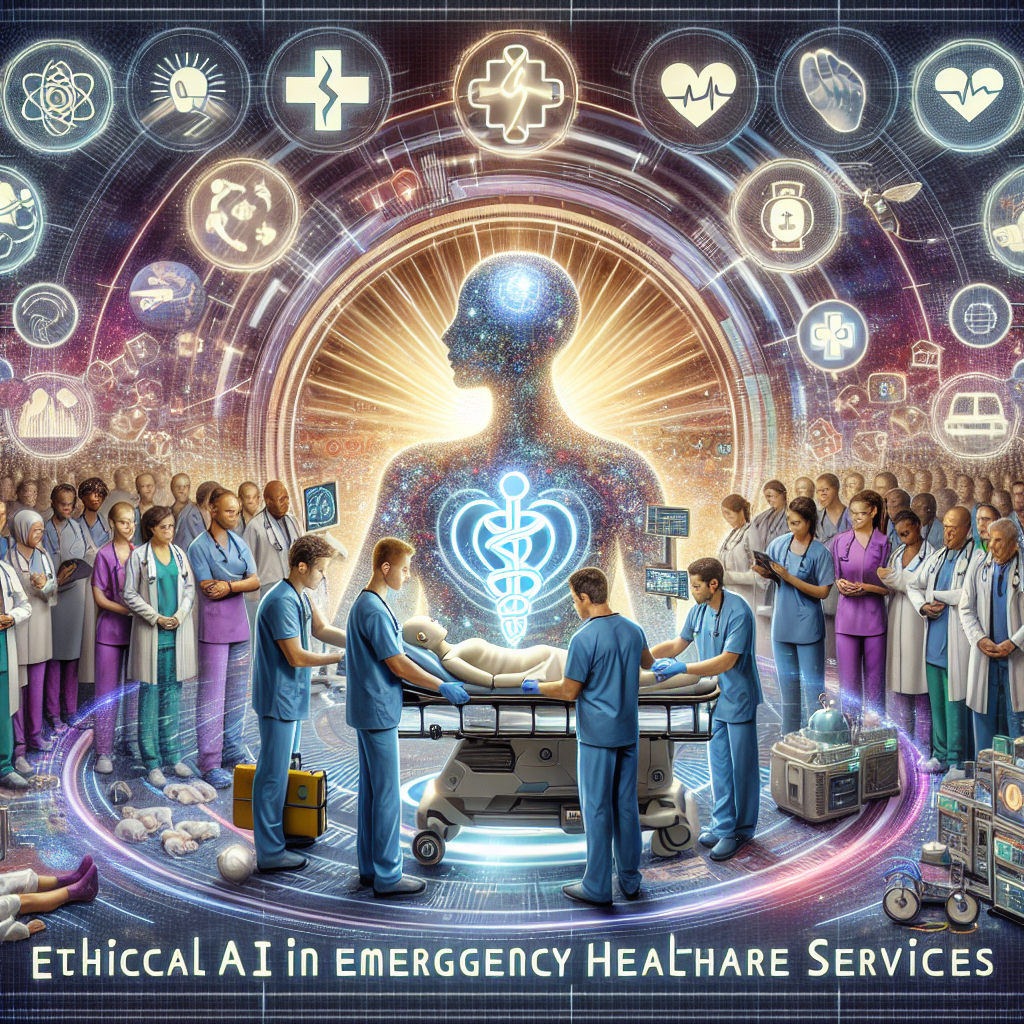Ethical AI in Emergency Healthcare Services: Ensuring Timely and Efficient Care
Introduction
In recent years, the integration of artificial intelligence (AI) in healthcare has transformed the way emergency services are delivered. AI has the potential to improve patient outcomes, reduce healthcare costs, and enhance the overall efficiency of emergency healthcare services. However, the use of AI in emergency healthcare services also raises ethical concerns that must be addressed to ensure that patients receive timely and appropriate care.
Ethical Considerations in AI in Emergency Healthcare Services
One of the key ethical considerations in the use of AI in emergency healthcare services is the potential for bias in AI algorithms. Bias in AI algorithms can lead to disparities in healthcare outcomes for patients from marginalized communities, as the algorithms may be based on historical data that reflects existing biases in the healthcare system. To address this issue, healthcare providers must ensure that AI algorithms are transparent, accountable, and regularly audited to identify and eliminate bias.
Another ethical consideration in the use of AI in emergency healthcare services is the potential for breaches of patient privacy and confidentiality. AI algorithms require access to patient data to make accurate predictions and recommendations, which raises concerns about the security of patient information. Healthcare providers must implement robust data security measures to protect patient privacy and ensure that patient data is only used for the intended purpose.
Additionally, the use of AI in emergency healthcare services raises concerns about the potential for automation bias, where healthcare providers may rely too heavily on AI recommendations without critically evaluating them. To address this issue, healthcare providers must ensure that AI algorithms are used as decision support tools rather than as a replacement for clinical judgment.
Benefits of Ethical AI in Emergency Healthcare Services
Despite these ethical considerations, the use of AI in emergency healthcare services offers numerous benefits that can improve patient outcomes and enhance the overall efficiency of healthcare delivery. Some of the key benefits of ethical AI in emergency healthcare services include:
1. Faster and more accurate diagnosis: AI algorithms can analyze large amounts of patient data to rapidly identify patterns and trends that may indicate a specific condition or disease. This can help healthcare providers make faster and more accurate diagnoses, leading to improved patient outcomes.
2. Predictive analytics: AI algorithms can predict patient outcomes based on historical data, allowing healthcare providers to proactively intervene and prevent adverse events. This can help reduce hospital readmissions and improve patient satisfaction.
3. Resource optimization: AI algorithms can help healthcare providers optimize resource allocation, such as hospital beds, staff, and medical supplies, to ensure that patients receive timely and appropriate care. This can help reduce wait times, improve patient flow, and enhance the overall efficiency of emergency healthcare services.
4. Personalized treatment plans: AI algorithms can analyze patient data to develop personalized treatment plans based on individual patient characteristics and preferences. This can help improve treatment outcomes and patient satisfaction.
FAQs
Q: How can healthcare providers ensure that AI algorithms are unbiased?
A: Healthcare providers can ensure that AI algorithms are unbiased by regularly auditing the algorithms for bias, ensuring that the data used to train the algorithms is representative of the patient population, and involving diverse stakeholders in the development and validation of the algorithms.
Q: How can healthcare providers protect patient privacy when using AI in emergency healthcare services?
A: Healthcare providers can protect patient privacy by implementing robust data security measures, such as encryption and access controls, ensuring that patient data is only used for the intended purpose, and obtaining patient consent before using their data for AI algorithms.
Q: How can healthcare providers prevent automation bias when using AI in emergency healthcare services?
A: Healthcare providers can prevent automation bias by ensuring that AI algorithms are used as decision support tools rather than as a replacement for clinical judgment, providing training to healthcare providers on how to interpret and critically evaluate AI recommendations, and encouraging open communication and collaboration among healthcare providers.
Conclusion
Ethical AI in emergency healthcare services has the potential to improve patient outcomes, reduce healthcare costs, and enhance the overall efficiency of healthcare delivery. However, healthcare providers must address ethical considerations, such as bias, privacy, and automation bias, to ensure that patients receive timely and appropriate care. By implementing robust ethical guidelines and practices, healthcare providers can harness the power of AI to transform emergency healthcare services and improve patient outcomes.

